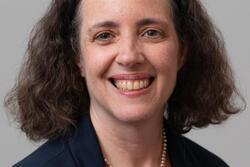We Begin to Become a Multitude
On Sunday, June 16, 2013, I attended a historical event. The first Yeshivat Maharat ordination ceremony in New York City took place, and three women joined Rabba Sara as institutionally accredited Orthodox clergy.
This was the fifth ordination I have attended, and for the third school. As a teenager growing up in an out-of-the-way Reform congregation served by student rabbis, I attended two of their ordination ceremonies at HUC-JIR in Cincinnati. And in the past two years, I’ve attended the Chag HaSemikha (ordination celebration) for Yeshivat Chovevei Torah (YCT), where my husband is a current student.
At first glance, the Maharat ordination strongly resembled the other events. Like the YCT ordination, the Maharats are single gender. And at both ceremonies, the format is similar– speakers discuss how wonderful the students are, then carry out the actual moment of the ordination individually with each student, and conclude with a blessing for the group.
That’s only at first glance. At second, third and fourth glance, there’s more here.
Who Was There:
On the one hand were dignitaries – those called out by name in various of the speeches: Rabbi Dov Linzer, Rosh HaYeshiva of YCT, Rabbi David Ellenson, the Dean of HUC-JIR, and Rabbi Sally Preisand, the first female rabbi ordained by HUC-JIR in 1973. Blu Greenberg received a special mention several times as the beginner of the dream. In addition, several rabbis from the Conservative movement made a showing of support.
On the other hand, the rest of the audience was similarly diverse. The men mostly wore kippot, although not all, but the women wore kippot, tichels, hats, and sheitels. It was a mix of pants and skirts. There was an amazing amount of pregnant women and small babies, including Rachel Kohl Finegold’s two-week-old daughter Hadar. Upstairs, a lot of families had taken advantage of the childcare offered for the ceremony, something I had not seen at other ceremonies.
What Was Said:
This was the first time that Orthodox women were ordained in an institutional setting. There was a profound sense that not only was this a big moment for the three women getting ordained, but also for the men who trained them. I could hear the pride in Rabbi Jeffrey Fox, the Rosh HaYeshiva’s voice, and how much this meant to Rabbi Avi Weiss. In particular, Rabbi Weiss emphasized the desire to give a professionally recognized title to these women (even if it is Maharat, rather than Rabba), and the absolute necessity of the support of the male rabbis who have welcomed these women into their congregations. For Rabba Sara, I had the profound sense that she was creating an exciting new cohort of colleagues for herself. It’s one thing to be a groundbreaker, but totally another to bring others along with you, to create a system and a path for future generations.
They also chose to do a video presentation, which highlighted something for me that I had already noticed, but wasn’t quite aware of how much it was true. From the invitation, which listed their Hebrew names, it was clear that all three women are the daughters of rabbis. In the video, I learned that two of the three are married to rabbis, and at least one has a brother who is a rabbi. In fact, I think I was most touched by listening to Rachel Kohl Finegold talk about her twin brother, and what it was like for her to learn rabbinic Judaism after college in a parallel curriculum to his own, with the final result that he was ordained and she was not. These are women who were surrounded by rabbis, and who, if they had been born men, would have found no real opposition to becoming rabbis themselves. By making that choice as Orthodox women, they find themselves in the position of groundbreaker.
The Future:
The future is always about questions, and I hear a lot of them about Yeshivat Maharat and the Maharats themselves. Will Yeshivat Maharat be sustainable? Will it ever gain acceptance by centrist Orthodoxy? Will they ever be able to use the title Rabba? How will the increased presence of women change the Orthodox rabbinate overall? Are there a finite number of jobs for these women? Will it get harder to place them in the future? Or could it get easier as more places get used to the idea and are swayed by their level of learning and professionalism? Will a synagogue choose a Maharat as their only leader? Or even the senior leader? I can only guess at the answers, but even asking these questions feels like something new, special and important. The answers will come in time, and will shape the future of Orthodoxy. And I look forward to attending the ordination ceremony again next year, too.






I eagerly await the day when your questions will have answers. B'meheira b'yamenu.